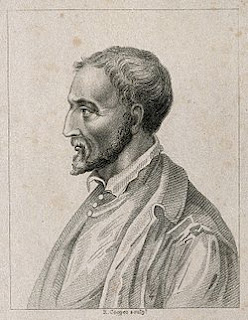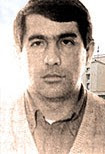Grazia Deledda - Nobel Prize winner
First Italian woman to be honoured
The novelist Grazia Deledda, who was the first of only two Italian women to be made a Nobel laureate when she won the Nobel Prize in Literature in 1926, was born on this day in 1871 in the city of Nuoro in Sardinia. A prolific writer from the age of 13, she published around 50 novels or story collections over the course of her career, most of them drawing on her own experience of life in the rugged Sardinian countryside. The Nobel prize was awarded "for her idealistically inspired writings which with plastic clarity picture the life on her native island and with depth and sympathy deal with human problems in general." Deledda’s success came at the 11th time of asking, having been first nominated in 1913. The successful nomination came from Henrik Schuck, a literature historian at the Swedish Academy. Born into a middle-class family - her father, Giovanni, was in her own words a “well-to-do landowner” - Deledda drew inspiration for her characters from the stream of friends and business acquaintances her father insisted must stay at their home whenever they were in Nuoro. She was not allowed to attend school beyond the age of 11 apart from private tuition in Italian. Read more…
_________________________________________________________
Cosimo de’ Medici – banker and politician
Father of Florence used his wealth to encourage great architecture
Today is the date Cosimo di Giovanni de’ Medici, the founder of the Medici dynasty, celebrated his birthday. Cosimo and his twin brother, Damiano, were born to Giovanni di Bicci de’ Medici and Piccarda Bueri in April 1389, but Damiano survived for only a short time. The twins were named after the saints Cosmas and Damian, whose feast day in those days was celebrated on 27 September. Cosimo later decided to celebrate his birthday on 27 September, his ‘name day’, rather than on the actual date of his birth. Cosimo’s father came from a wealthy family and after making even more money he married well. A supporter of the arts in Florence, he was one of the financial backers for the magnificent doors of the Baptistery by Ghiberti, although they were not completed until after his death. By the time his father died, Cosimo was 40 and had become a rich banker himself, which gave him great power. He had also become a patron of the arts, learning and architecture. The Abizzi family, who ruled Florence, feared his power and also coveted his wealth so they had Cosimo arrested on the capital charge of having tried to raise himself up higher than others. Read more…
__________________________________________________________
Jovanotti - musician
Former rapper an important figure in Italian pop culture
The singer-songwriter Lorenzo Cherubini – better known as Jovanotti – was born on this day in 1966 in Rome. Famous in his early days as Italy’s first rap star, Jovanotti has evolved into one of Italian pop music’s most significant figures, his work progressing from hip hop to funk and introducing ska and other strands of world music to Italian audiences, his increasingly sophisticated compositions even showing classical influences. He has come to match Ligabue in terms of the ability to attract massive audiences, while his international record sales in the mid-90s were on a par with Eros Ramazzotti and Laura Pausini. Since his recording debut in 1988 he has sold more than seven million albums. Although born in Rome, Cherubini came from a Tuscan family and spent much of his childhood and adolescence in Cortona in the province of Arezzo, where he now has a home. He began to work as a DJ at venues in and around Cortona, mainly playing dance music and hip hop, which at the time was scarcely known in Italy. After finishing high school he went back to Rome because he felt he had a better chance of launching a musical career via the capital’s club scene. Read more…
_________________________________________________________
Gracie Fields - actress and singer
English-born performer who made Capri her home
The English actress, singer and comedian Gracie Fields died on this day in 1979 at her home on Capri, the island on the south side of the Gulf of Naples. The 81-year-old former forces sweetheart had been in hospital following a bout of pneumonia but appeared to be regaining her health. The previous day she had walked with her husband, Boris, to the post office on the island to collect her mail. Some English newspapers reported that Gracie had died in the arms of her husband but that version of events was later corrected. It is now accepted that Boris had already left La Canzone del Mare, the singer's original Capri home overlooking the island's landmark Faraglioni rocks, to work on the central heating at a second property they had bought in Anacapri, on the opposite side of the island, and that Gracie was with her housekeeper, Irena, when she passed away suddenly. Fields, born Grace Stansfield in Rochdale, England, in 1898, had visited Capri for the first time in the late 1920s or early 30s, with two artists she had befriended in London, where she was becoming an established star in the revue format. Read more…

























